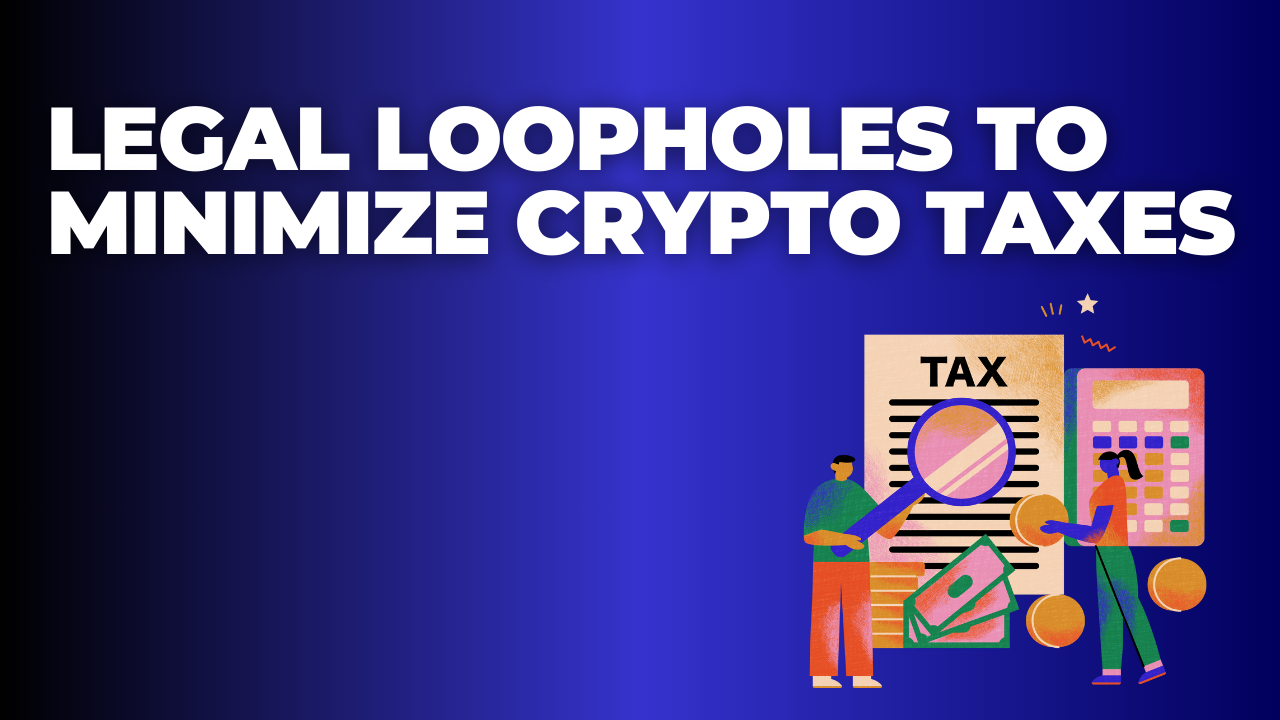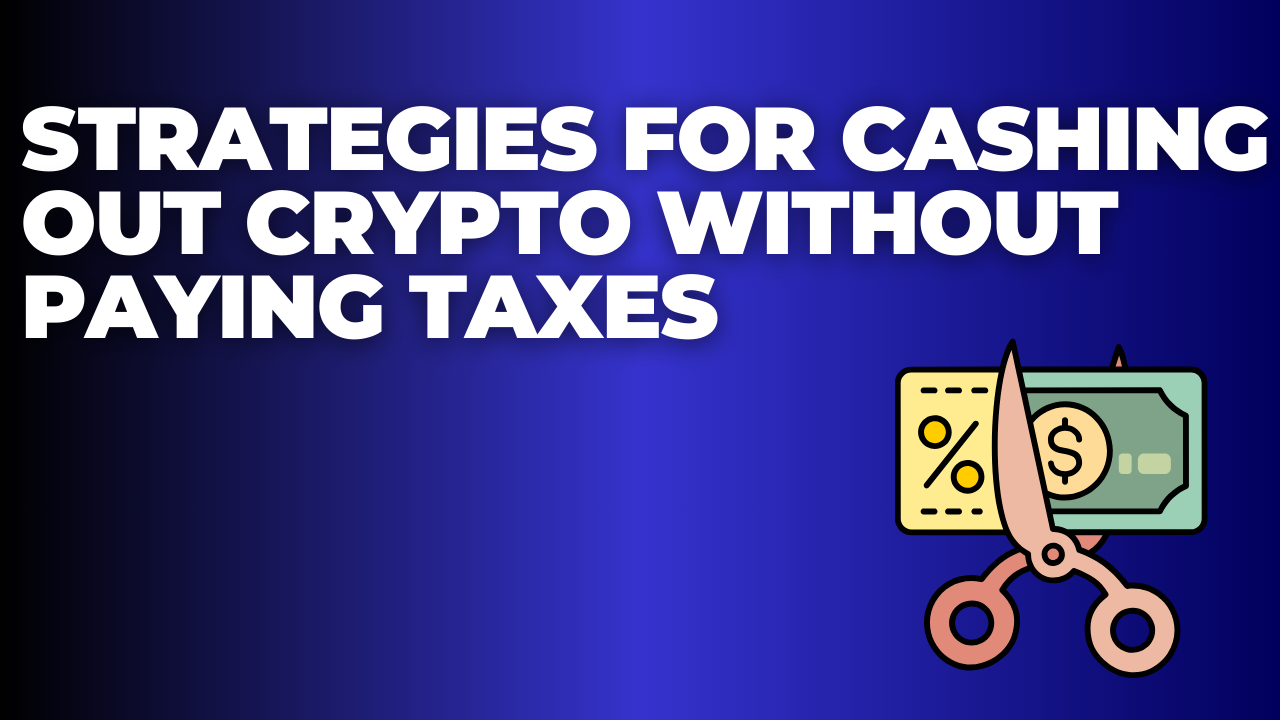Introduction
Cryptocurrency has become a popular investment and transaction tool, but when it comes time to cash out many people face a big question: how can you avoid paying taxes? While the U.S. tax system treats crypto as property meaning every transaction is potentially a taxable event there are strategies to minimize or even legally avoid taxes on your crypto profits. So, how do you cash out your crypto without getting hit with a major tax bill? Let’s dive in.
Crypto and the U.S. Tax System
How Cryptocurrency is Treated by the IRS
The IRS classifies cryptocurrency as a form of property not as traditional currency. That means just like stocks or real estate any gains made from selling or trading cryptocurrency are subject to capital gains taxes. Every time you sell, exchange or even spend crypto it’s a taxable event. Understanding this framework is key to avoiding unnecessary taxes.
What Constitutes Taxable Crypto Events
Several types of activities can trigger a taxable event:
- Crypto-to-Cash Transactions: When you convert your crypto into U.S. dollars or any other fiat currency you’re likely to owe taxes on the gains.
- Crypto-to-Crypto Trades: Swapping one cryptocurrency for another, like Bitcoin for Ethereum, is also a taxable event.
- Receiving Crypto as Payment: If someone pays you in crypto for goods or services you must report that as income at the fair market value of the crypto at the time you receive it.
Legal Loopholes to Minimize Crypto Taxes
Long-term vs. Short-term Capital Gains
One of the most effective ways to minimize crypto taxes is by holding your assets for more than a year. The IRS distinguishes between short-term capital gains (for assets held less than a year) and long-term gains (for assets held over a year). Long-term capital gains are taxed at a lower rate, ranging from 0% to 20% depending on your income bracket.
Using Tax-Free Thresholds to Your Advantage
In the U.S. you can make a certain amount of profit without triggering taxes. For example, if your total income, including crypto gains is below a certain threshold you may not owe any capital gains tax.
Gifting Crypto to Avoid Capital Gains
Another way to avoid paying taxes on your crypto is by gifting it. The IRS allows you to give up to $17,000 per person annually without triggering a taxable event for either party.
Strategies for Cashing Out Crypto Without Paying Taxes
Harvesting Crypto Losses to Offset Gains
If you have made both profits and losses in cryptocurrency you can sell your underperforming assets at a loss to offset the taxable gains from your profitable ones. This is known as tax-loss harvesting and is a popular strategy for reducing taxes.
Using 401(k) or IRA Accounts for Crypto Investment
Investing in cryptocurrency through tax-advantaged accounts like an IRA or 401(k) can shield your gains from taxes until you start withdrawing funds potentially allowing you to cash out in a lower tax bracket.
Moving to a Tax-Friendly State or Country
Some U.S. states like Florida and Texas have no state income tax meaning you can avoid state-level taxes on your crypto gains. If you’re looking for a more extreme measure some countries like Portugal and Germany have very favorable tax laws for cryptocurrency investors.
Using Stablecoins as a Tax-Efficient Strategy
Converting Crypto to Stablecoins as a Potential Loophole
Stablecoins are cryptocurrencies linked to stable assets such as the U.S. dollar. Some people convert their volatile cryptocurrencies into stablecoins, which theoretically doesn’t trigger a taxable event because you’re not cashing out into fiat currency. However, tax laws surrounding stablecoins are still evolving so consult a tax professional before attempting this.
Risks and Rewards of This Approach
While using stablecoins may seem like a clever workaround there are risks involved. Regulatory bodies may eventually close this loophole and the IRS could begin treating stablecoin conversions as taxable events.
Utilizing Crypto Debit Cards and Payments
How Crypto Debit Cards Work
Crypto debit cards allow you to spend your cryptocurrency directly by converting it into fiat currency at the point of sale. While this is convenient the IRS still considers these conversions as taxable events so be cautious.
The Tax Implications of Using Crypto Cards
Each time you swipe your crypto debit card, you are technically selling your crypto which may result in capital gains taxes. The same rules apply as if you were selling crypto for cash on an exchange.
Tax-Free Crypto Loans
Borrowing Against Your Crypto Assets
One of the more innovative ways to cash out crypto without triggering a taxable event is by borrowing against your holdings. Several platforms allow you to take out loans using your crypto as collateral. Since loans aren’t considered income, this method can help you access funds without selling your assets and incurring capital gains tax.
Avoiding Taxable Events Through Loans
As long as you repay the loan this method can allow you to maintain your crypto investments while still having access to liquidity all without creating a taxable event.
Cryptocurrency Tax Professionals
The Importance of Professional Advice
Tax laws surrounding cryptocurrency are complex and constantly changing. That’s why it’s crucial to consult a tax professional who understands crypto. They can help you identify opportunities to reduce your tax burden and ensure that you’re compliant with IRS regulations.
Choosing a Tax Professional Who Understands Crypto
Not all tax professionals are well-versed in cryptocurrency, so it’s essential to choose someone who has experience with digital assets. They can help you navigate legal loopholes and strategies to minimize your tax liability.
Selling Large Amounts All at Once
Cashing out a large sum of crypto at once can push you into a higher tax bracket. Instead, consider selling small amounts over time to reduce your tax liability.
Failing to Report Crypto Transactions
The IRS is cracking down on crypto tax evasion, and failing to report your transactions can result in hefty fines and penalties. Make sure to maintain thorough records of all your cryptocurrency transactions.
Conclusion
Cashing out crypto without paying taxes in the U.S. is challenging but not impossible. By understanding the tax rules and leveraging legal strategies you can minimize your tax liability and keep more of your crypto profits. Whether you’re harvesting losses using tax-advantaged accounts or borrowing against your assets there are several ways to cash out while staying on the right side of the law. It’s essential to seek advice from a tax expert to stay compliant.
FAQs
1. Is it lawful to withdraw crypto without paying taxes?
Yes, but only if you use legal strategies such as tax-loss harvesting, gifting or borrowing against your assets. It’s important to always seek guidance from a tax professional to ensure you’re following the rules.
2. How can I reduce my crypto tax liability?
Holding crypto for over a year tax-loss harvesting, and investing through tax-advantaged accounts like IRAs are all effective ways to reduce your tax liability.
3. Do I need to report small crypto transactions?
Yes, the IRS requires you to report all crypto transactions, regardless of size, as they may result in capital gains or losses.
4. What consequences arise from failing to pay taxes on cryptocurrency?
Failing to report or pay taxes on crypto can result in fines, penalties, and even criminal charges in extreme cases.
5. Can I donate my crypto to charity to avoid taxes?
Yes, donating crypto to a qualified charitable organization can help you avoid capital gains taxes and potentially result in a tax deduction.



